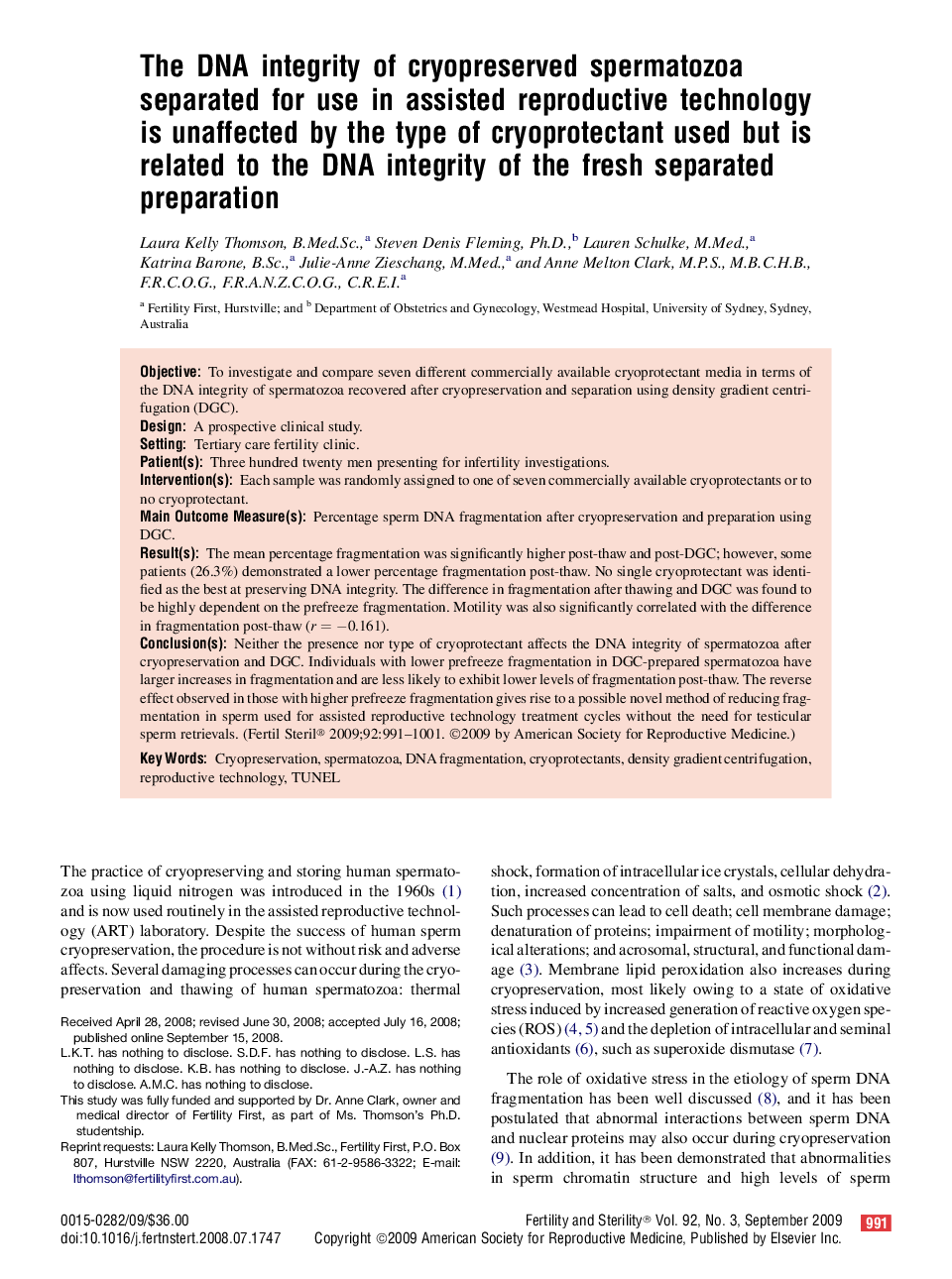| Article ID | Journal | Published Year | Pages | File Type |
|---|---|---|---|---|
| 3933853 | Fertility and Sterility | 2009 | 11 Pages |
ObjectiveTo investigate and compare seven different commercially available cryoprotectant media in terms of the DNA integrity of spermatozoa recovered after cryopreservation and separation using density gradient centrifugation (DGC).DesignA prospective clinical study.SettingTertiary care fertility clinic.Patient(s)Three hundred twenty men presenting for infertility investigations.Intervention(s)Each sample was randomly assigned to one of seven commercially available cryoprotectants or to no cryoprotectant.Main Outcome Measure(s)Percentage sperm DNA fragmentation after cryopreservation and preparation using DGC.Result(s)The mean percentage fragmentation was significantly higher post-thaw and post-DGC; however, some patients (26.3%) demonstrated a lower percentage fragmentation post-thaw. No single cryoprotectant was identified as the best at preserving DNA integrity. The difference in fragmentation after thawing and DGC was found to be highly dependent on the prefreeze fragmentation. Motility was also significantly correlated with the difference in fragmentation post-thaw (r = −0.161).Conclusion(s)Neither the presence nor type of cryoprotectant affects the DNA integrity of spermatozoa after cryopreservation and DGC. Individuals with lower prefreeze fragmentation in DGC-prepared spermatozoa have larger increases in fragmentation and are less likely to exhibit lower levels of fragmentation post-thaw. The reverse effect observed in those with higher prefreeze fragmentation gives rise to a possible novel method of reducing fragmentation in sperm used for assisted reproductive technology treatment cycles without the need for testicular sperm retrievals.
